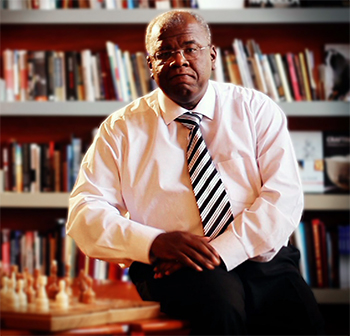Latest News Archive
Please select Category, Year, and then Month to display items
12 October 2020
|
Story Arina Engelbrecht
|
Photo Supplied
 Arina Engelbrecht from Organisational Development and Employee Well-being believes physical activity has a number of benefits for one’s health, including stress relief.
Arina Engelbrecht from Organisational Development and Employee Well-being believes physical activity has a number of benefits for one’s health, including stress relief.
Being physically active plays a big role in preventing the development of mental-health problems and in improving the quality of life of people experiencing mental-health problems.
Treatment for depression
Physical activity can be an alternative treatment for depression. It can be used as a stand-alone treatment or in combination with medication and/or psychological therapy. It promotes all kinds of changes in the brain, including neural growth, reduced inflammation, and new activity patterns are formed that promote feelings of calm and well-being. It releases endorphins – powerful chemicals in the brain that energise your spirit and make you feel good.
Physical activity can be very effective in relieving stress. Research in adults has found that physically active individuals tend to have lower stress levels compared to individuals who are less active. It also leads to improved sleep. When a person sleeps better and feels more rested, overall quality of life improves. They cope better with daily life stressors.
Reduce Alzheimer's risk
Regular physical activity can reduce your risk of developing Alzheimer's disease by up to 50%. It can also slow down further deterioration in those who have already started to develop cognitive problems. It stimulates the brain’s ability to maintain old connections as well as to make new ones.
A study asked people to rate their mood immediately after periods of physical activity (e.g. going for a walk/run, cycling, doing housework) and periods of inactivity (e.g. reading a book or watching television). Researchers found that participants felt more content, more awake, and calmer after being physically active compared to after periods of inactivity.
In conclusion, people who are physically active feel a sense of well-being, feel more energetic throughout the day, sleep better at night, have sharper memories, and feel more relaxed and positive about themselves and their lives.
“Being physically active not only changes your body, it changes your mind,
attitude, and your mood.” – Arina Engelbrecht
Prof Jonathan Jansen elected as new ASSAf President
2016-10-28

Prof Jonathan Jansen, former Vice-Chancellor
and Rector of the UFS, has been appointed
President of the ASSAf.
Photo: Supplied
The Academy of Science of South Africa (ASSAf) has elected former Vice-Chancellor and Rector of the University of the Free State (UFS), Prof Jonathan Jansen, as its new President for the next four years. He succeeds Prof Daya Reddy. Distinguished Professors Brenda Wingfield and Barney Pityana were elected ASSAf’s new Vice-Presidents.
The minds that shape tomorrow
The academy’s directive is to advise and provide the government with evidence-based solutions to national problems; inspiration, and examples of how science and technology can be applied for the benefit of society. ASSAf represents scientists in South Africa but also represents the country in the international community of science academies.
Prof Jansen, who is currently a Senior Research Professor at the UFS and a Fellow at the Center for Advanced Studies in the Behavioral Sciences at Stanford University, is also a Fellow of the American Educational Research Association, a Fellow of The World Academy of Sciences, and President of the South African Institute of Race Relations.
The great achieve greatly
Prof Jansen’s book, Knowledge in the Blood: Confronting Race and the Apartheid Past won the Nayef Al-Rodhan Prize, the largest award from the British Academy for Social Sciences and Humanities, for its contribution to scholarly excellence and transcultural understanding.
In 2013, he was awarded the Education Africa Lifetime Achiever Award in New York and the Spendlove Award from the University of California for his contributions to tolerance, democracy and human rights. He holds honorary degrees from the University of Edinburgh, the University of Vermont and Cleveland State University.
Plans for the future
His recent books include Leading for Change, which was published this year. He is completing a new book explaining the current crisis in, and future prospects of, South African universities, due for release in mid-2017.